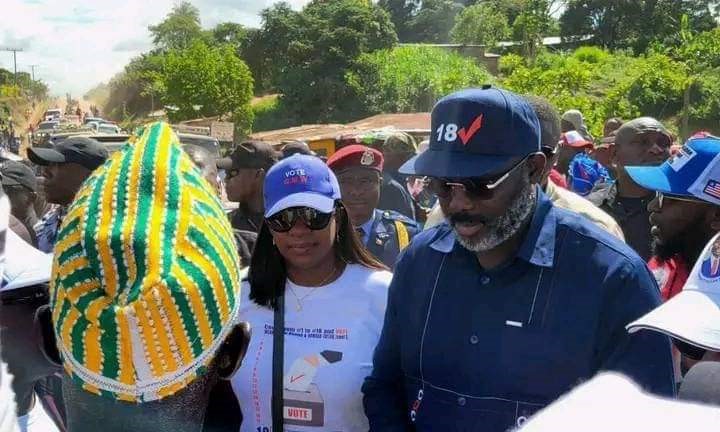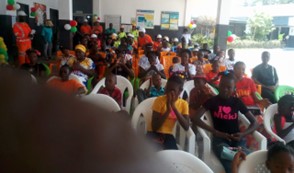When the Commissioner General of the Liberia Revenue Authority (LRA) told the Liberian Senate during his confirmation hearing that “our country can raise a billion in revenue to support development”, he made the assertion cognizant of the huge dividends that the nation stands to reap from ArcelorMittal’s phase two expansion.
ArcelorMittal, which has a few more years left, is seeking to expand its operation in Liberia for an additional 25 years. The phase two expansion project, if ratified, will allow AML to expand its investment portfolio by investing an additional 1 billion United States dollars in Liberia. By this, it implies that not only will thousands of job opportunities, both directly and indirectly, be created but the country will benefit from millions of dollars in taxes, royalties and other payments. This will help grow our national budget from a little over US$700 million to over a billion dollars.
The phase two expansion is a huge benefit to growing the national budget, accelerating development and creating gainful employment opportunities for Liberia’s idled youth.
The Government of Liberia (GOL) stands to benefit from US$80 million from AML’s phase two expansion if the third MDA is ratified. Currently, as per the existing agreement, AML provides a little over US$45 million per annum in royalty, excluding other taxes and corporate social responsibility funds. But the third amendment brings a significant increase in annual royalty to the government, and this needs to be welcomed by all well-meaning Liberians.
The statement of the Commissioner-General of Liberia Revenue Authority could not come at a better time than when ArcelorMittal-Liberia is expanding its operation in Liberia. His statement, like the IMF and World Bank’s, was bottomed on the massive benefits Liberia stands to reap from its mineral resource sector, especially coming from its biggest corporate partner, AML.
Excluding royalties and other dividends, the phase two expansion will create an additional 2,000 direct new jobs and over 4,000 indirect new jobs. Those to be gainfully employed with AML will pay income taxes to the Government of Liberia (GOL), which inadvertently will help raise domestic revenue and grow the current size of the national budget. This will also increase savings in commercial banks when more of Liberia’s citizens are employed and well paid. Also, commercial banks will have to expand and also enlarge their current workforce to be able to provide the most convenient services to their customers all across the country. These additional employments in the banking sector will also contribute to increase in income taxes and, obviously, the national budget. So, Commissioner Thomas Doe Nah did not make vacuum assertions about the possibility of growing the national budget to a billion United States dollars, or even more: these assertions were made heavily reliant on AML and the mining sector as a whole.
AML is Liberia’s biggest taxpayer and, as well, the largest foreign direct investment (FDI) the country has seen since post-war. Over the last sixteen years, AML has invested over US$1.7 billion in the country—paying tons of millions in royalties, taxes, signature bonuses and other corporate social responsibilities to the Liberian government. The onus is on the government to manage properly these royalties, taxes and other payments to the benefit of the country and its people—if Liberians are to truly feel the impact of these foreign direct investments.
The government will have to embrace with open arms AML’s phase two expansion, which is underway. If Liberians are to help develop the country, grow the national budget and keep the young people gainfully employed so that politicians do not exploit them to protest against the government and cause insurrection in the country for personal greed, Liberians will have to encourage the stay of well-intentioned foreign investors in the country, to include AML.
The investment climate Liberians will create and the decorum with which they treat investors or corporate partners will no doubt enable the inflow of more foreign direct investments into the country. And it cannot be gainsaid that to grow our budget and address the menacing socioeconomic quagmires will require substantial foreign direct investments in the country.
AML’s decision to invest in Liberia, especially at a time the country was struggling to recover from the scourge of brutal civil wars which decimated lives and major infrastructures, was a remarkable and quintessential display of unmatched love for Liberia. No investor would have easily done so, especially when the country was still fragile and tagged as an epic center of the conflict. This singular act of AML to announce a billion-dollar investment in Liberia during the reign of not just a democratically elected government but a transitional government comprised of various warring factions and a few civilians inspired hope and confidence in other investors and development partners to heavily see the need to invest in a war-torn country—Liberia. This comes with lots of sacrifices and risks, and above all, love for country and people. This is why Liberians support AML’s phase two expansion. Liberians know it has lots of opportunities for the country and the Liberian people. Many Liberians are encouraging the government to support the AML phase two expansion by ratifying the third mineral development agreement with AML.






